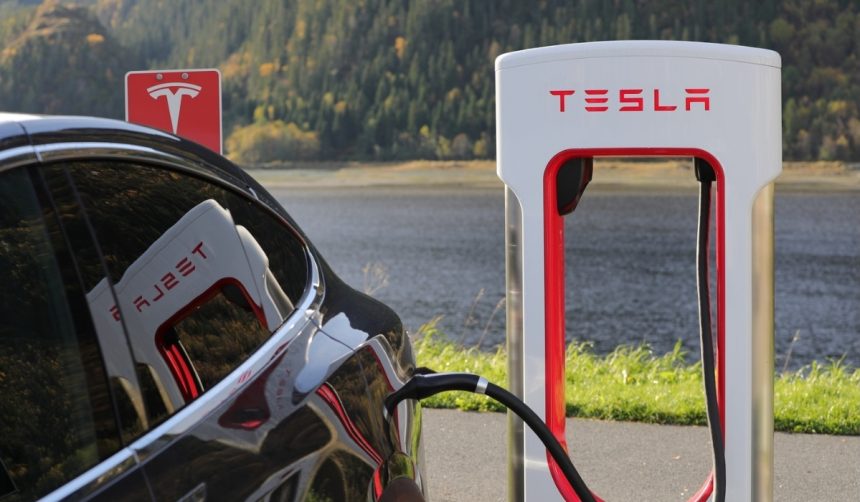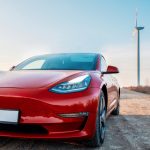Tesla has confirmed that all Model Y variants available for the Chinese market in 2025 have already been sold. The shift in delivery estimates on the company’s order page points to a significant uptake, prompting mixed reactions among potential buyers and industry onlookers. Tesla’s quick sell-out highlights the persistent appeal of its offerings, even with strong competition from local brands such as Xiaomi YU7. Consumers who still hope to receive a Model Y this year must now opt for inventory vehicles, as newly placed orders indicate delivery timelines stretching well into the next year. These developments reflect ongoing changes in China’s rapidly evolving electric vehicle landscape, as buyers increasingly weigh factors such as pricing, technology, and autonomy features. The new delivery schedule signals high demand and underscores how local and international automakers compete for dominance in the world’s largest EV market.
Previous announcements by Tesla regarding the Model Y in China showed shorter delivery timelines and did not mention inventory limitations. Only a few months ago, industry reports indicated production adjustments at Tesla’s Shanghai facility, with speculation over fluctuating demand and rising competition from emerging domestic automakers. The recent confirmation of sell-outs for all 2025 Model Y variants marks a departure from those trends. In contrast to this new situation, earlier narratives centered on the uncertainty of market share retention amid price reductions and policy-driven consumer shifts. The shift suggests a renewed strength in Tesla’s market position, although local rivals continue to challenge its pricing and feature sets.
What Is the Status of Model Y Deliveries?
Tesla’s official order page in China warns prospective buyers that purchasing a Model Y inventory vehicle is the only way to ensure delivery before year’s end. For factory orders, estimated delivery timelines now range from 4 to 13 weeks depending on the variant. This information applies to the Model Y Rear-Wheel Drive, Model Y L, Model Y Long Range RWD, and Model Y Long Range AWD. The extension of delivery periods is being interpreted as evidence that 2025’s sales quotas have been fully allocated.
“Customers looking to take delivery this year should consider our current inventory,”
Tesla China noted on its updated platform.
How Are Competitors and Demand Affecting the Market?
Local competitors such as Xiaomi have intensified the competitive environment with models like the Xiaomi YU7 undercutting Tesla’s pricing, seeking to capture budget-conscious buyers. Despite this pressure, Tesla’s Model Y maintains a strong sales trajectory. Analysts attribute this resilience to a mixture of brand loyalty, expanding charging networks, and incremental improvements to Tesla’s driving software. The prolonged delivery windows for higher-end variants suggest that buyers remain attracted to Tesla’s performance and features, even as alternatives multiply in the market.
Will Full Self-Driving Approval Impact Future Sales?
At present, Tesla is only permitted to offer a partially approved version of its Full Self-Driving (FSD) software in China. The full-featured version, FSD V14, remains unavailable as the company awaits regulatory clearance. Elon Musk, at the 2025 Annual Shareholder Meeting, addressed these challenges, stating,
“We hopefully will have full approval in China around February or March or so. That’s what they’ve told us.”
Users locally have provided positive feedback for the “Autopilot automatic assisted driving on urban roads,” though expectations remain high for the full software release. Full approval could further boost demand and stimulate another round of orders if regulations allow complete implementation.
Tesla’s ability to achieve rapid sales completion for 2025 Model Y units demonstrates both the company’s enduring brand strength and the ongoing appetite for advanced EV technology in China. This also signals a complex interplay between demand, supply management, and regulatory hurdles surrounding autonomous driving software. Practices such as maintaining diversified product offerings and closely monitoring regulatory developments enable companies like Tesla to remain competitive amid domestic and foreign pressures. For consumers, these developments emphasize the importance of timely orders, monitoring inventory stocks, and staying informed about software feature updates that may soon be approved for use in China. Buyers seeking the latest autonomous driving capabilities are likely to closely follow any announcements on the rollout of Tesla’s full FSD, as approval will influence not only delivery wait times but also future purchasing decisions.










